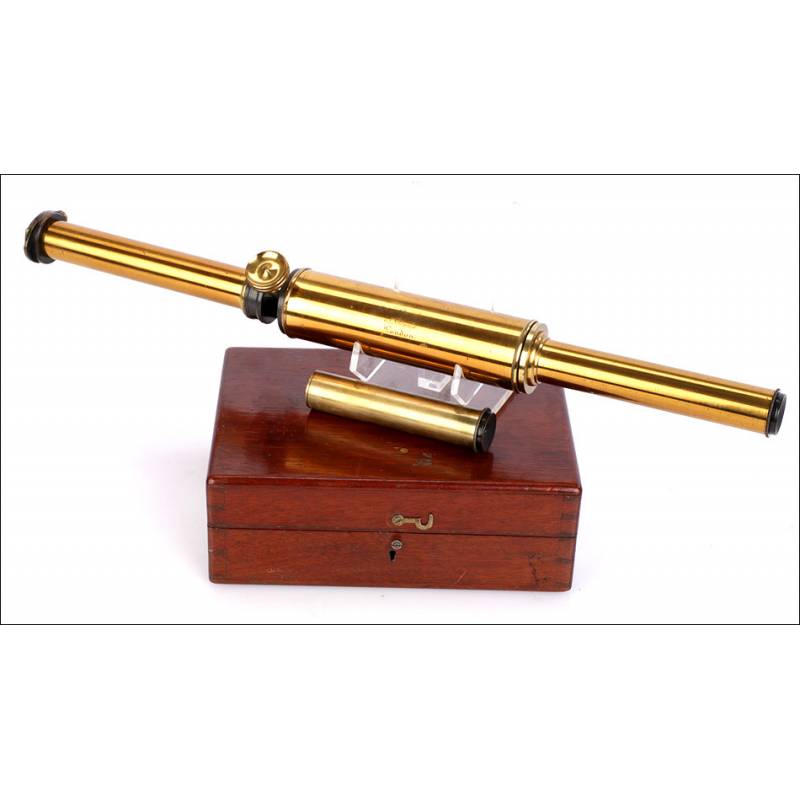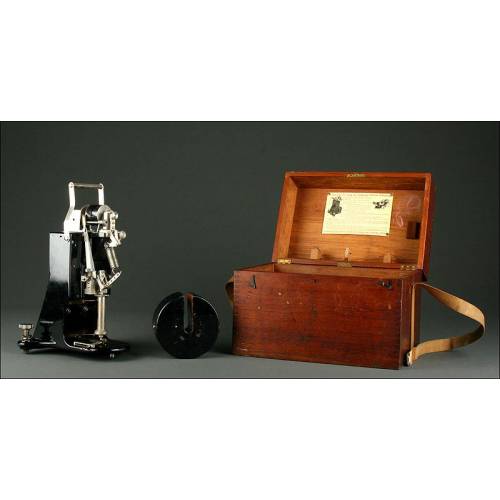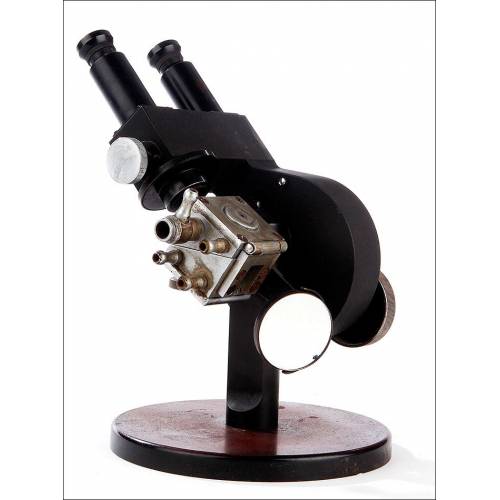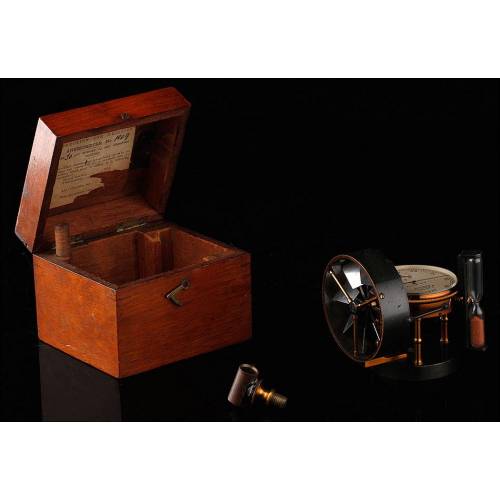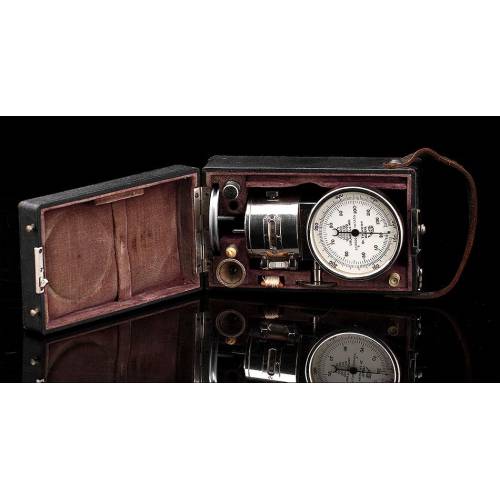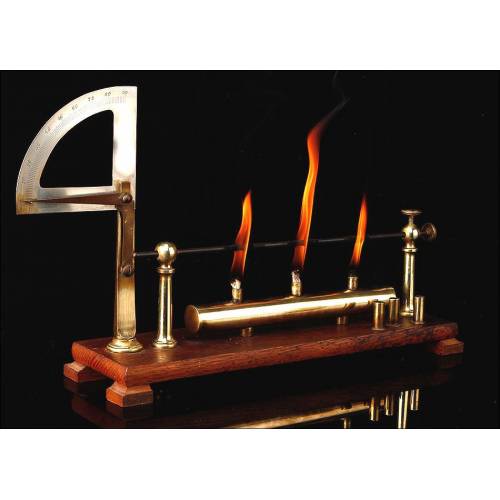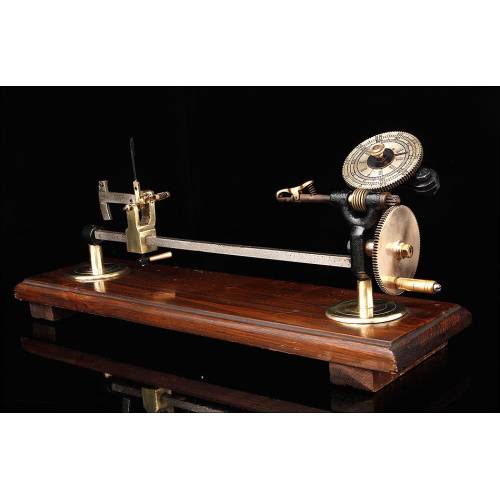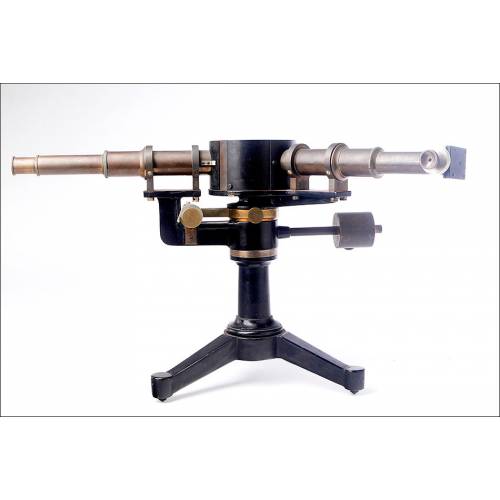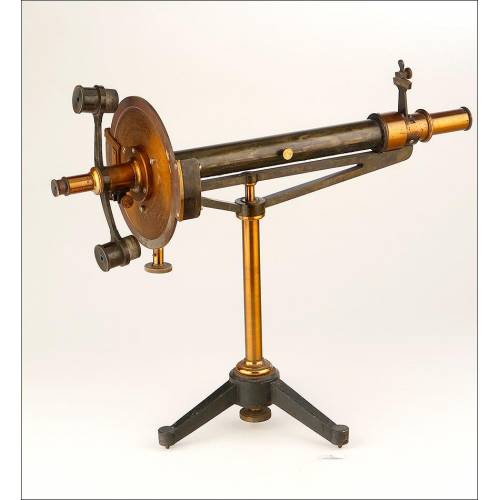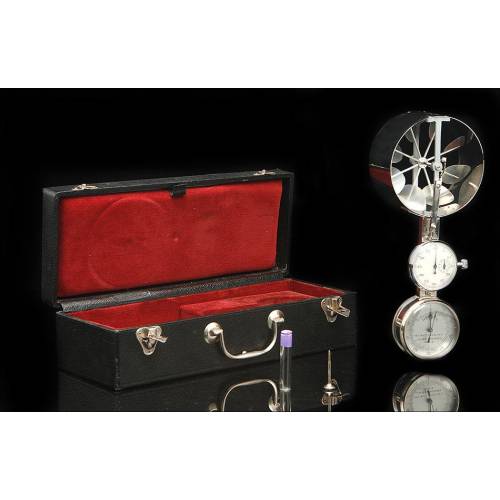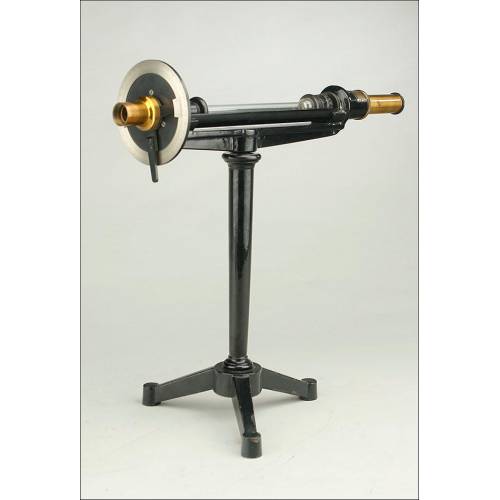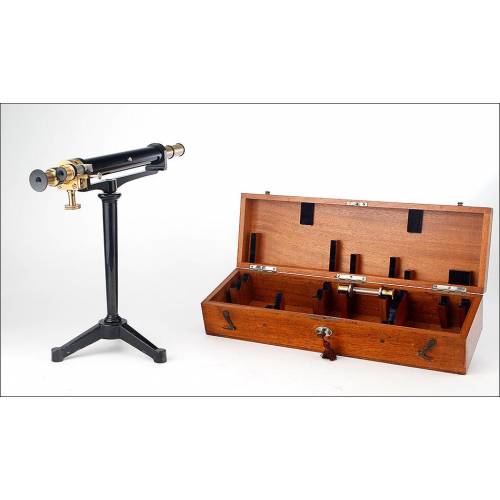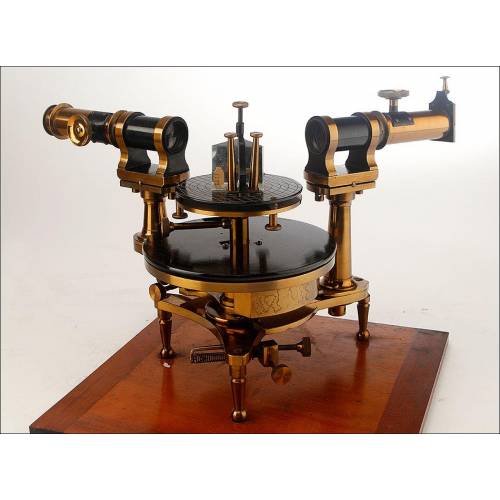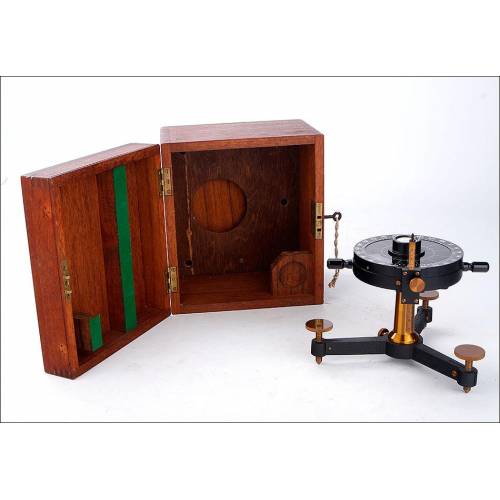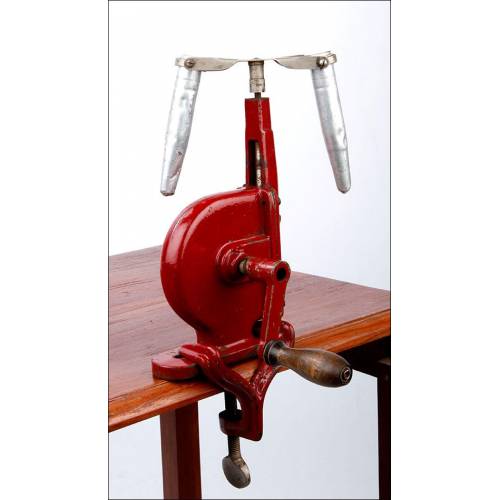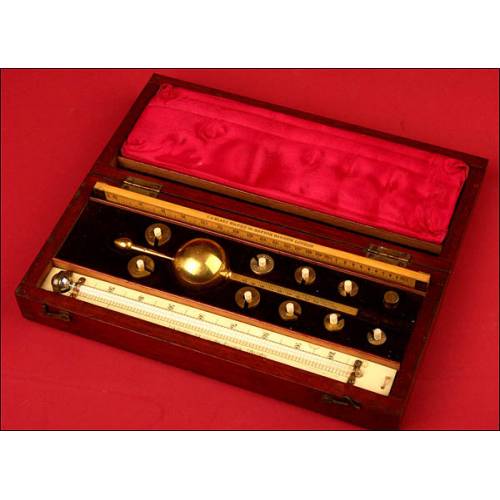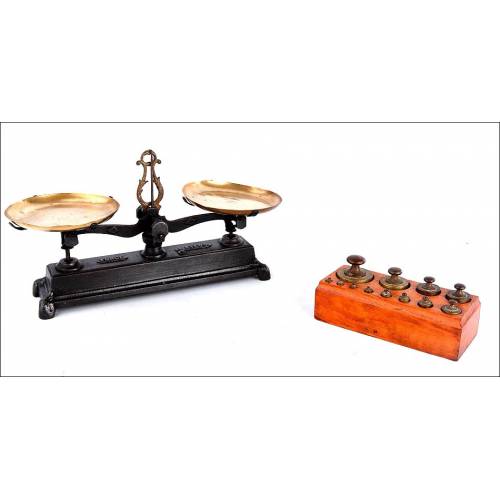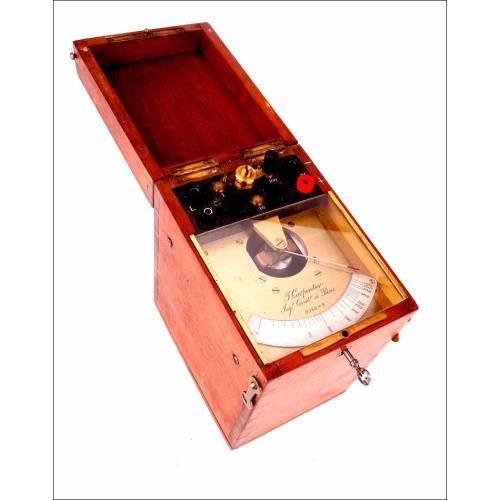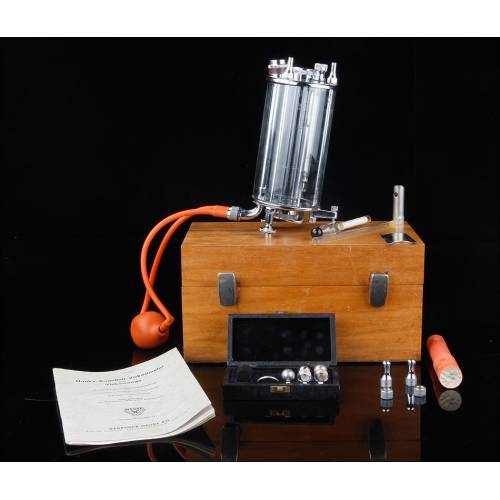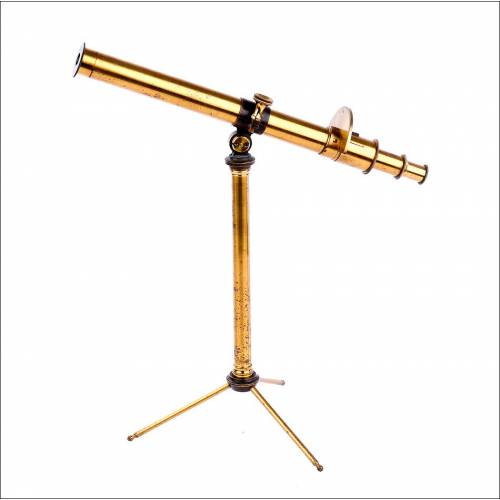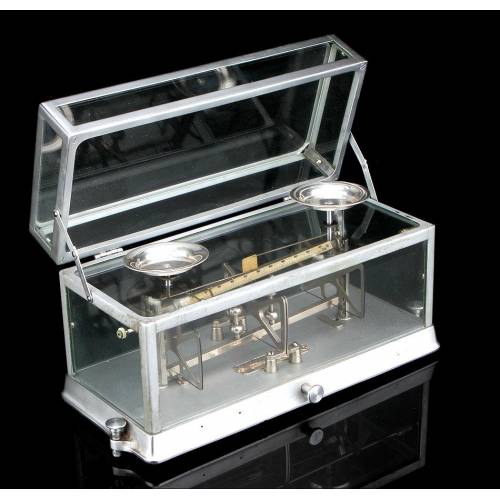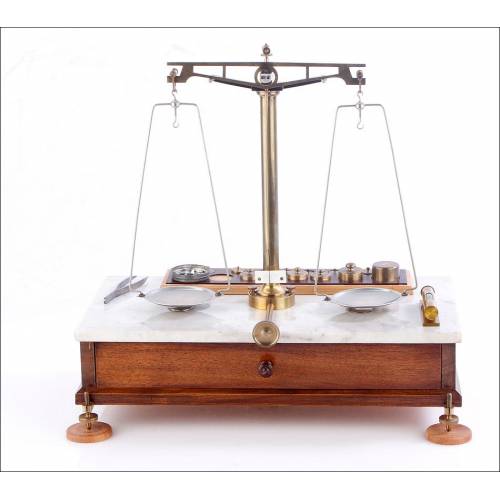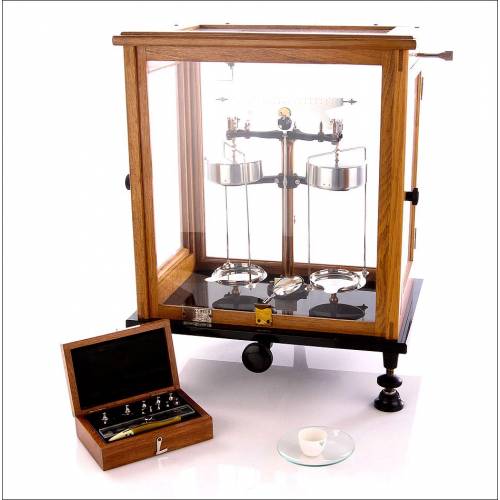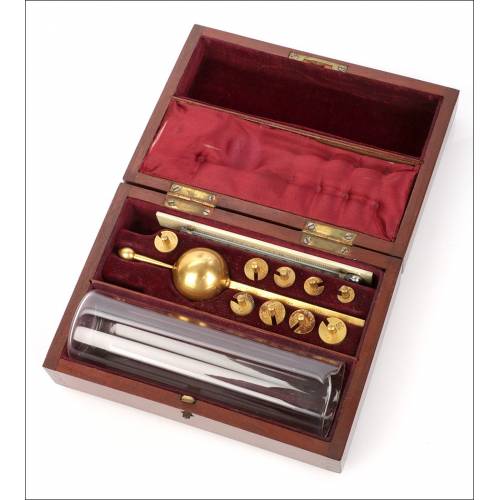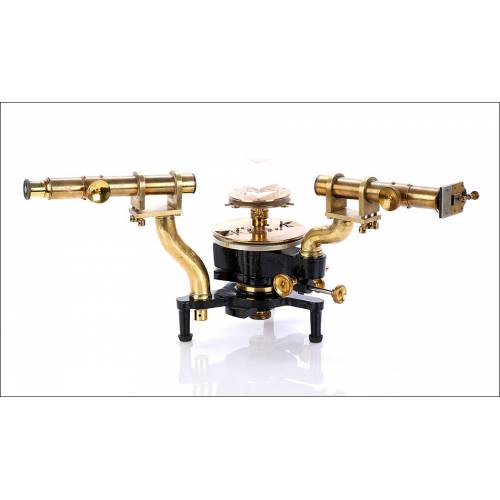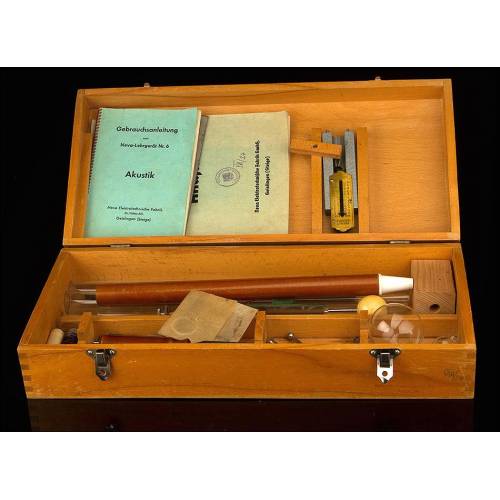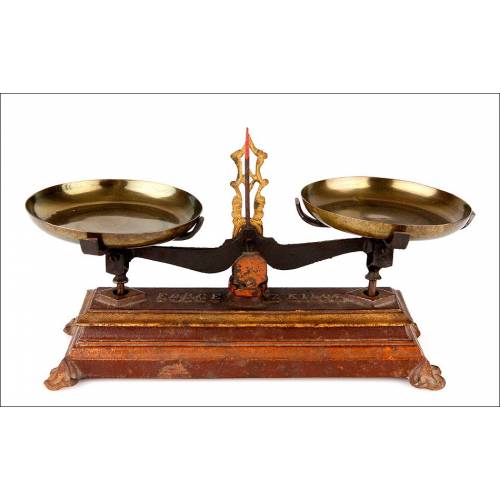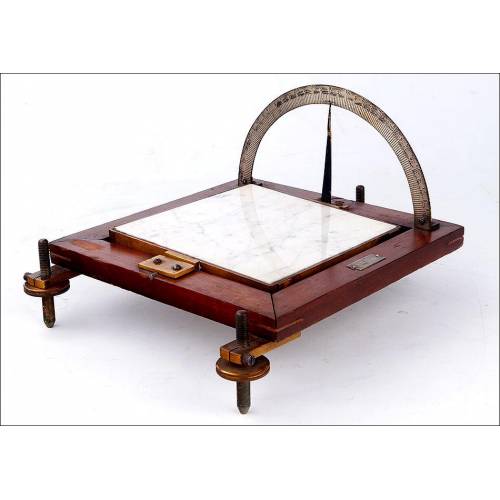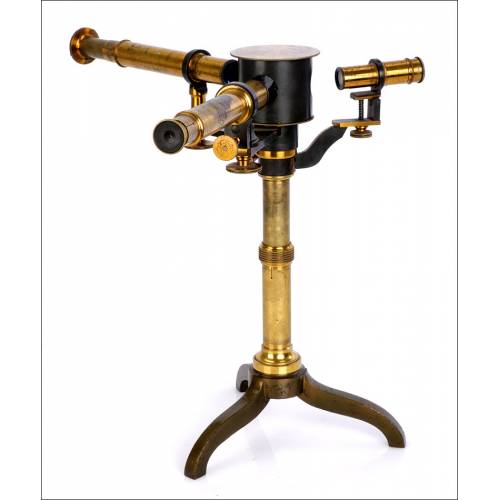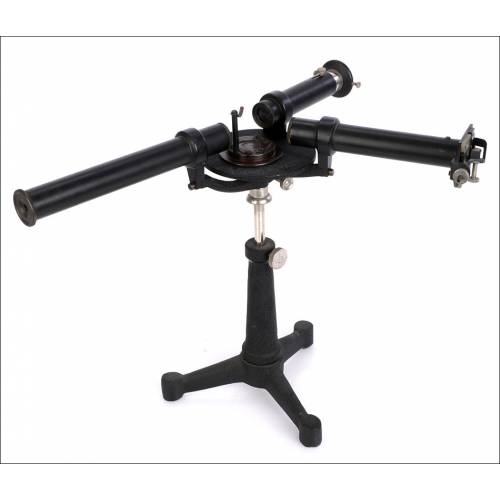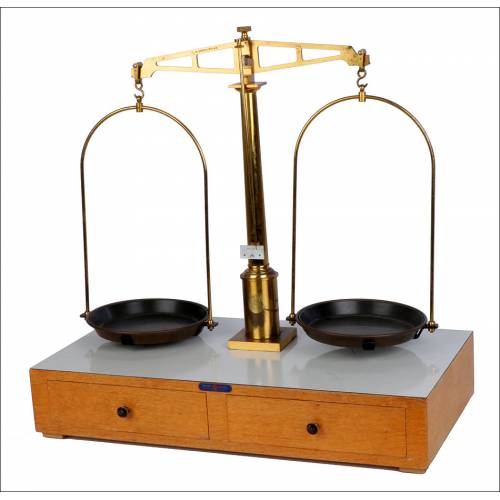C-697
Antique John Browning Hand Held Portable Spectrometer. England, Circa 1880
Rare antique hand-held spectrometer manufactured by the prestigious English inventor John Browning. In excellent working condition. Collector's item.
Sold!
Antique portable John Browning spectrometer made in England circa 1880. This fine device is a very rare piece, complete and in perfect condition and great working order. It is designed to split light in a different array of colors, depending on their wavelengths. When focused on a light source, this spectrometer makes it possible to distinguish the whole color spectrum. The device looks like a telescope and is fully made of brass; it comes with its original solid-wooden case too. The brass remains in great condition in spite of the devices ancient age. The metal preserves the original transparent protecting lacquer which protects the surface and provides it with a warm patina. One of the spectrometers bodies is attached to the central piece by an articulated arm. Engraved in the central body we can see the engraved manufacturers signature and address: John Browning 63 Strand. The spectrometer can be dismantled in order to put it into the storing case, a fine solid-mahogany wooden box in amazing condition. The box shows fine dovetail joints and a wonderful satin finish. The manufacturers prestige adds to the high quality of this antique portable spectrometer, a rare and ingenious device worthy of belonging to the best collection. Measurements: Length: 17 in / 42.5 cm.John Browning - History John Browning was a famous inventor and scientific instrument builder who lived and worked in England between 19th and 20th centuries. He is widely known for being one of the most important spectrometer manufacturers of his time: his products were considered high-quality and state-of-the-art pieces. Browning was the son and grandson of prestigious scientific and musical instruments. Though in the beginning he studied to become a doctor, though he passed his exams his poor health made him leave this profession behind and take over the family business, a company which manufactured nautical instruments. Between 1865 and 1872 he got the patents of many devices: microscopes, telescopes, cameras, spectrometers He was also the first who installed an electric lamp in London. In 1900 W. Watson & Son took over the company, and in 1905 Browning retired for good.

